parliamentary reform

Figure 1. William Pitt, 1st Earl of Chatham, was Secretary of State from 1756 to 1761 and the foremost politician of his age, known as the "Great Commoner". During this period in power he was absorbed in the Seven Years War (1756–1763) and left the management of Parliament and elections to the Duke of Newcastle. Pitt kept free of party ties and showed no interest in parliamentary reform, despite his close friendship with Wilkes. His last political act was to plead for a policy of self-government under the Crown for the American colonies. He formed a Second administration in 1766, but ill health forced him to retire from politics in 1768.
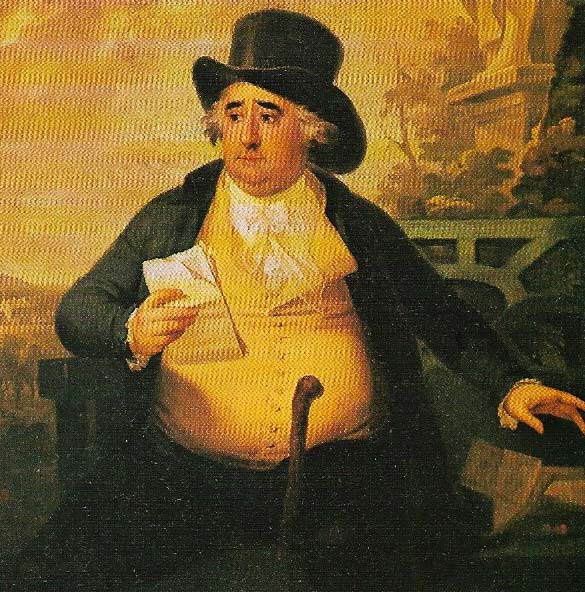
Figure 2. Charles James Fox was the effective leader of the Whigs during the last decades of the 18th century. Independent minded, a brilliant orator and a spendthrift who amassed huge gambling debts, Fox is remembered for his vigorous opposition to the Crown and his support for parliamentary reform and the anti-slavery movement. As a party leader he was not very successful, holding office only twice, in 1783 and 1806. His bitter opposition to George III deprived him of royal favour and kept him from power. In addition, his support for the French Revolution split the Whigs and lost him support, as did his opposition to Pitt's repressive acts in the 1790s.
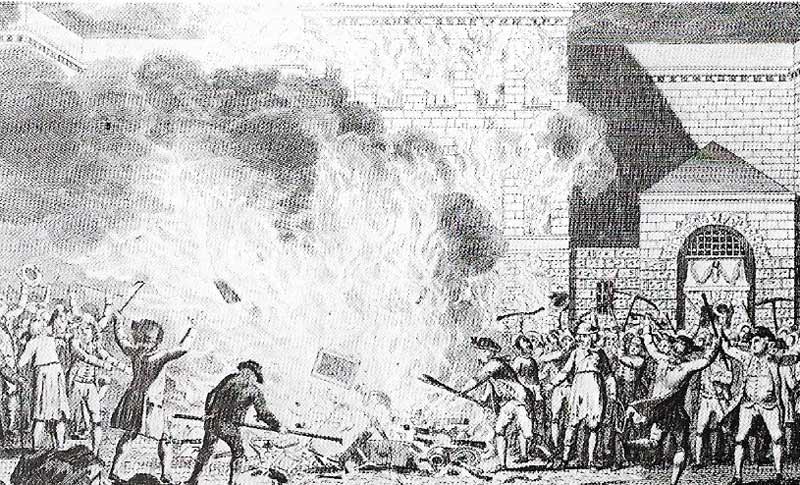
Figure 3. The Gordon Riots in June 1780 were caused by opposition to the removal of legal penalties from Roman Catholics. In 1779, an extreme Protestant Association was formed by Lord Gordon (1751–1793) to prevent what was believed to be growing Catholic power. Petitions and demonstrations were followed by a week of rioting and looting in central London after the Commons refused to debate their cause. Newgate prison was stormed and burned (shown here), property looted and the Bank of England attacked. More than 400 people were killed in the rioting and looting.
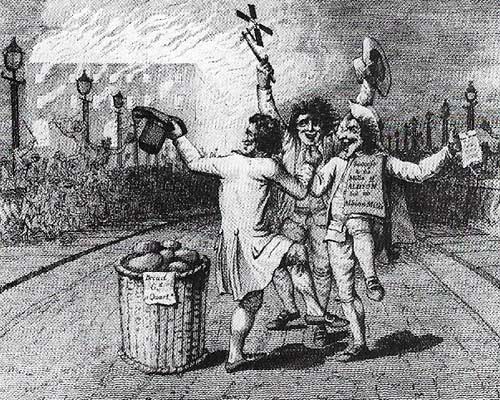
Figure 4. Poor harvests and high prices caused several waves of food riots in the late 18th and early 19th centuries. In particular, the wars with France from 1793 led to great hardship and many popular disturbances. In 1800, the price of corn was more than treble the price in 1790.
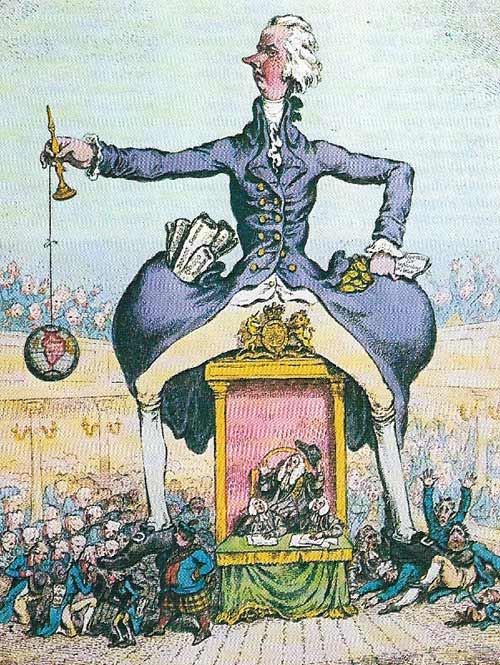
Figure 5. William Pitt, the Younger who led the Tory party from 1784, is shown here dominating the House of Commons. He held office with only a short break, from 1801–1804, until his death. His inexperience led to early defeats of his attempts to reform Parliament and create a police force for London, but he soon established a stable and efficient administration. Pitt reduced patronage and reorganized the civil service, while settling colonial affairs in India with his India Act of 1784. As a war minister after 1793, he was not totally successful. Taxation and defeats made his Government unpopular, but he weathered the crisis, introducing repressive measures against the radical societies at home. In 1801, he resigned over the king's opposition to Catholic emancipation, but returned as prime minister in 1804 for two troubled years before his death.
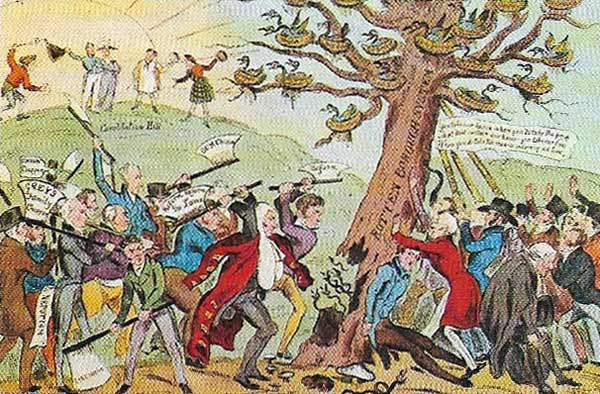
Figure 6. The movement for parliamentary reform gathered momentum in the last 25 years of the 18th century. This cartoon shows reformers attacking the "rotten" boroughs, the virtually uninhabited towns that still elected members to Parliament. Old Sarum was a notorious example of this – there a handful of voters returned two MPs. In addition, many seats were at the disposal of landed patrons, the so-called "pocket" boroughs. The larger manufacturing towns such as Manchester, Sheffield, Birmingham and Leeds were unrepresented, and the voting qualifications varied from town to town. The younger Pitt introduced a bill in 1785 to remove boroughs, but it was defeated in the Commons.
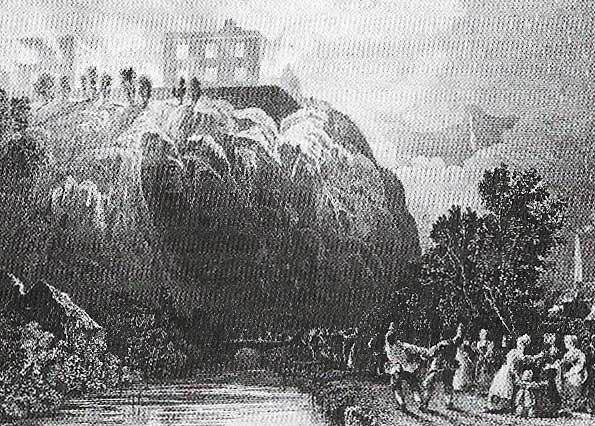
Figure 7. Agitation for reform culminated in the Reform Bill struggle of 1830–1832. The Whig Government was returned in 1830 pledged to carry a reform bill. But rejection of the bill by the Lords in 1831 precipitated severe rioting in many parts of the country. At Bristol there were four days of riots and in Nottingham the castle was burnt (shown here) by supporters of the bill. The bill was finally passed in 1832.
The age of the younger William Pitt (1759–1806) and Charles Fox (1749–1806) saw the beginning of the transformation that turned Britain from and agricultural society governed by a narrow oligarchy of the landed classes into an urban, industrial society with democratic rights for most of its inhabitants. During the 60-year reign of George III (reigned 1760–1820), economic and social change greatly enlivened political debate.
Party lines tended to harden during the latter part of the century, replacing the more fluid groupings of the time of Robert Walpole (1676–1745), and reflecting the rise of more divisive issues in politics, such as the American crisis, the power of the Crown, and the Wilkes affair. Out of these were born the demand for parliamentary reform and the emergence, for the first time since 1715, of something approaching a two-party division under the leadership of Pitt and Fox.
The power of the Crown
The accession of George III provoked a period of instability in British politics. The king's dismissal of the existing administration under the elder William Pitt (1708–1778) and the Duke of Newcastle (1693–1768) was followed in 1762 by the elevation of the king's favourite, the Earl of Bute (1713–1792), to lead the administration. These actions, as well as the pronouncements of the new king, reawakened fears that the Crown would attempt to dominate politics and that the mixed constitution of Crown, Lords and Commons, embodied in the Glorious Revolution of 1689 outdoor be undermined.
In fact, George III was not aiming at the royalist reaction that his opponents feared. Pan experienced and obstinate young king, he wished to free the Crown from the domination of the group of politicians that had held power under George II (reigned 1727–1760), especially the elder Pitt. The allegations that the king tyrannized his ministers and controlled a vast web of patronage were much exaggerated.
Nevertheless the resentments of the ousted Whig leaders were articulated in Edmund Burke's Thoughts on the Cause of the Present Discontents, published in 1770. Burke argued that the manipulation of patronage by he Crown permitted the monarch to dominate Parliament and rest his government upon a small group of "King's Friends", thus destroying the independence of the House of Commons.
At the beginning of George III's reign the attempts to exclude the MP John Wilkes (1727–1797) seemed to suggest that the Commons was no longer an independent body or even representative of those who already had the vote.
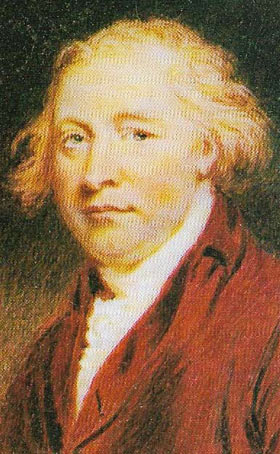 |
| Edmund Burke (1729-1797) was one of the leading politicians and political philosophers of the 18th century. A Whig, he articulated the theory of "loyal" opposition to the government of the day, blaming the corruption and alleged oligarchic tendencies of George III's reign for political instability and the disorders of the Wilkes affair. He sympathized with the American colonists' struggle for independence from England, but was opposed to the French Revolution for destroying the historically established, traditional institutions of the country. He broke with Fox and the Whigs over this in 1791 and campaigned for war against France until his death in 1797. |
Demands for reform
Hence the early years of George III's reign saw the rise in demands for reform. These were intended to reduce the influence of the Crown by removing the "rotten" boroughs and giving more seats to the large county electorates and some to the new manufacturing towns. The agitation for reform by the Yorkshire Association under Christopher Wyvill (1740–1822) and by John Wilkes's supporters in Middlesex and the City of London reflected feeling among small landowners and merchants. The was with America aroused still more dissatisfaction. Its incompetent handling, leading to defeat, contributed in 1782 to the fall of Lord North's (1732–1792) administration, which had held power since 1770.
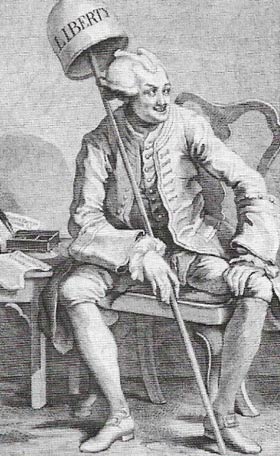 |
| John Wilkes achieved notoriety as one of the early champions of reform after he was arrested for criticising George III in his North Briton newspaper, in 1763. Wilkes claimed immunity as an MP, but he was expelled from the House of Commons. In 1768 Wilkes was elected MP for Middlesex. He became a focus for popular discontent with the Government and was able to manipulate this to cause riots in London in 1768. Imprisoned, Wilkes was re-elected three times, each time being expelled by the Commons. In 1774 he was finally allowed to take his seat in the House, but his assertion of popular opinion and freedom in politics was not forgotten. |
The re-emergence of two parties
After a confused period with three ministries in under two years, William Pitt formed a government in 1784. Although he never used the word "Tory" himself, Pitt proved, over his long administration, to be the re-founder of the Tory Party. Fox then emerged as the leader of the whigs and the effective opposition. The early struggles with George III had helped to sharpen party lines and legitimise opposition. Although the Whig and Tory parties were still more fluid than they were to become, Pitt and Fox provided leadership to a more coherent grouping of supporters then had been the case earlier in the century.
The passing of the "economical reform" acts in 1782 – reducing the number of officers in the pay of the crown eligible to sit in Parliament – contributed to the waning of royal influence. The professionalisation of the civil service under Pitt and his drive for greater economy further reduced offices and sinecures. George III's recurrent breakdowns into insanity contributed to the decline of monarchical power, culminating in his permanent incapacity in the last ten years of his life. Even so, the king retained sufficient personal influence to exclude Fox from office for much of the period and to support Pitt's administration. It was the king's obstinacy over Catholic emancipation that forced Pitt's resignation in 1801.
The last years of Pitt and Fox were dominated by impact of the French Revolution and the wars with France. Pitt was forced to act against the threat of subversion in England with a series of repressive measures, culminating in the treason trials of 1794 – aimed at the radical Corresponding Societies – and the Tow Acts of 1795. During those years, Fox alienated many of his parliamentary supporters by his support of the French Revolution at a time when its excesses shocked the majority of propertied opinion. Nonetheless, his opposition to the policies of Pitt and his brilliant oratory preserved the Whig's image as the party of reform.
